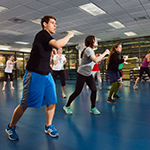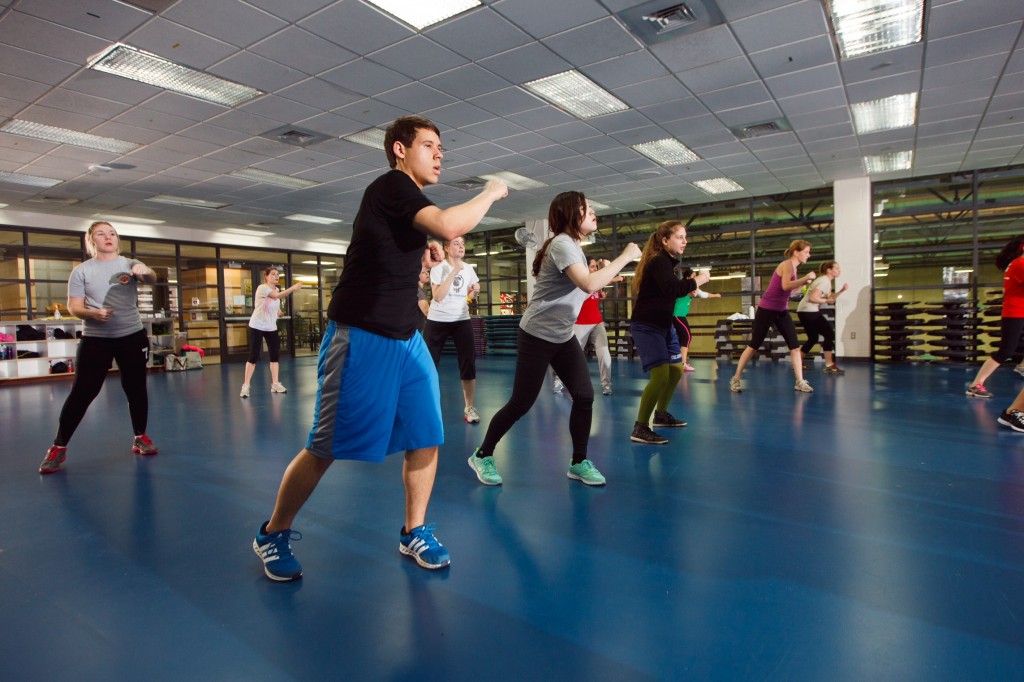Do you want to exercise, lose weight, regain health, but
don’t feel confident you can succeed? These feelings of low self-efficacy can influence a variety of behaviors, including a person’s goals, the amount of energy expended toward achieving those goals, and likelihood of attaining a certain level of behavioral performance (American Psychological Association, www.apa.org). What is self-efficacy? Relating to exercise, the American Council of Exercise (ACE) defines self-efficacy as “The beliefs in one’s own capabilities to successfully engage in a physical activity program” (Kovar, 2014).
The links between self-efficacy and health and fitness have been studied extensively with a variety of results. Some found exercise success leads to feelings of self-efficacy while others found that high levels of self-efficacy lead to exercise success. Yoon, Buckworth, Forcht, & Ko (2013) found the more physical energy a person had, the higher their levels of scheduling self-efficacy were, and thus were able to make the time to exercise. Wingo, et al. (2013) found that in their test group, weight loss over time increased more for those whose self-efficacy scores increased than for those whose self-efficacy decreased over time. Another study provided physical activity and then measured self-efficacy versus a control group. The test group reported positive changes in self-efficacy toward fitness after 24 weeks while the control group did not (Dallow & Anderson, 2003). Past experience can be a predictor of current self-efficacy state. Someone who has had exercise success in the past is likely to have more self-efficacy toward future exercise. Someone with multiple failed attempts at exercise is likely to have lower self-efficacy and negative self-esteem.
There are many ways to use this research to find a way for the obese person to achieve weight loss success. Kovar (2014) suggests that if multiple previous failures to exercise are causing low self-efficacy, start small with short-term attainable goals. It’s okay to set a long-term goal of losing 100 pounds in 18 months. It’s good to have something you want to lose 100 pounds for, such as travel, rock climbing, or to complete a race. These goals, however, require progressive steps. Determine goals for 1-4-week periods. These goals will eventually get you to your long-term goal, but they are achievable, and you can see the results, which builds self-efficacy. Such a goal would be to eat two additional servings of vegetables per day, drink 24 more ounces of water per day, make plans once a week to meet up with a friend while taking the dog for a long walk, or meet a personal trainer twice a week for 30 minutes. Seeing success from these goals builds self-efficacy. Then you have more confidence to set the next level of goals.
Another way to build self-efficacy levels is to have a cheerleader in your corner. This person can be a workout buddy, a personal trainer, or a friend who is expecting a text from you after each workout. If you choose a workout buddy, make an appointment to meet that person at the gym for each workout. You can make the workout a game either by partner exercises such as medicine ball passes or 2-person tubing strength training, or you can race on the treadmill to see who can cover the most miles in 30 minutes. Give and expect positive reinforcement for each workout. A personal trainer can give this reinforcement as well. Good trainers will help you reach those short-term goals and let you know that you are doing well along the way. They will encourage you along the journey and build your self-efficacy so you can meet that long term goal.
If you choose to text a friend after each workout, make sure it’s a friend who will respond and congratulate you every time. As you come to expect their praise, your self-efficacy will increase and you know you can do it. Make sure you tell this friend your short-term goals as well as your long-term goal. Then he or she can remind you that meeting the short-term goals is one step closer to your long-term goal activity.
References
Dallow, C. B., Anderson, J. (2003). Using self-efficacy and a transtheoretical model to develop a physical activity intervention for obese women. American Journal of Health Promotion, 17(6), 373-381.
Kovar, E. R. (2014). Building exercise self-efficacy in overweight and obese clients. IDEA Fitness Journal, 11(1), 84-87.
Wingo, B. C., Desmond, R. A., Brantley, P., Appel, L., Svetkey, L., Stevens, V. J., & Ard, J. D. (2013). Self-efficacy as a predictor of weight change and behavior change in the PREMIER trial. Journal of Nutrition Education and Behavior, 45(4), 314-321.
Yoon, S., Buckworth, J., Focht, B., & Ko, B. (2013). Feelings of energy, exercise-related self-efficacy, and voluntary exercise participation. Journal of Sport & Exercise Psychology, 35, 612-624.


